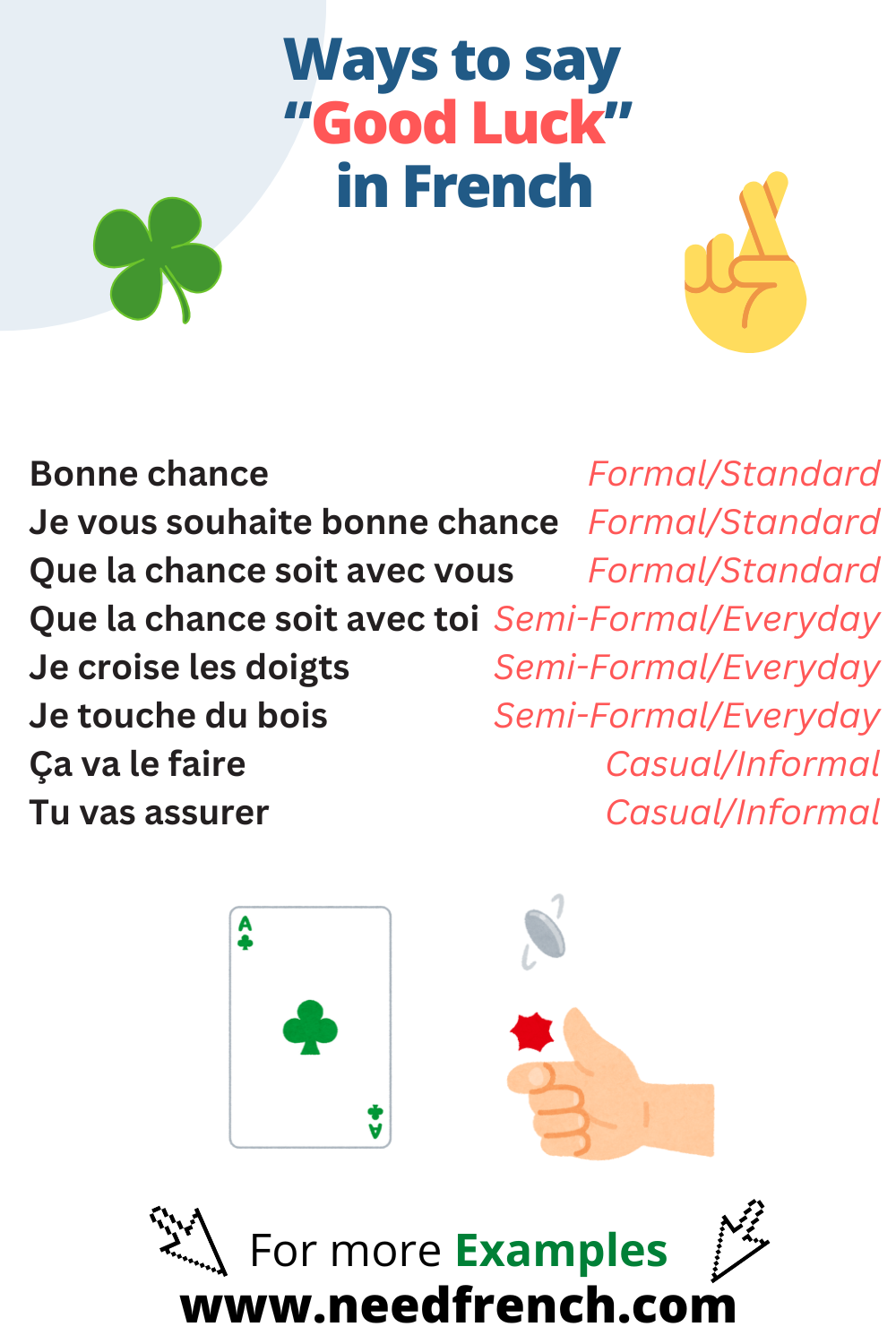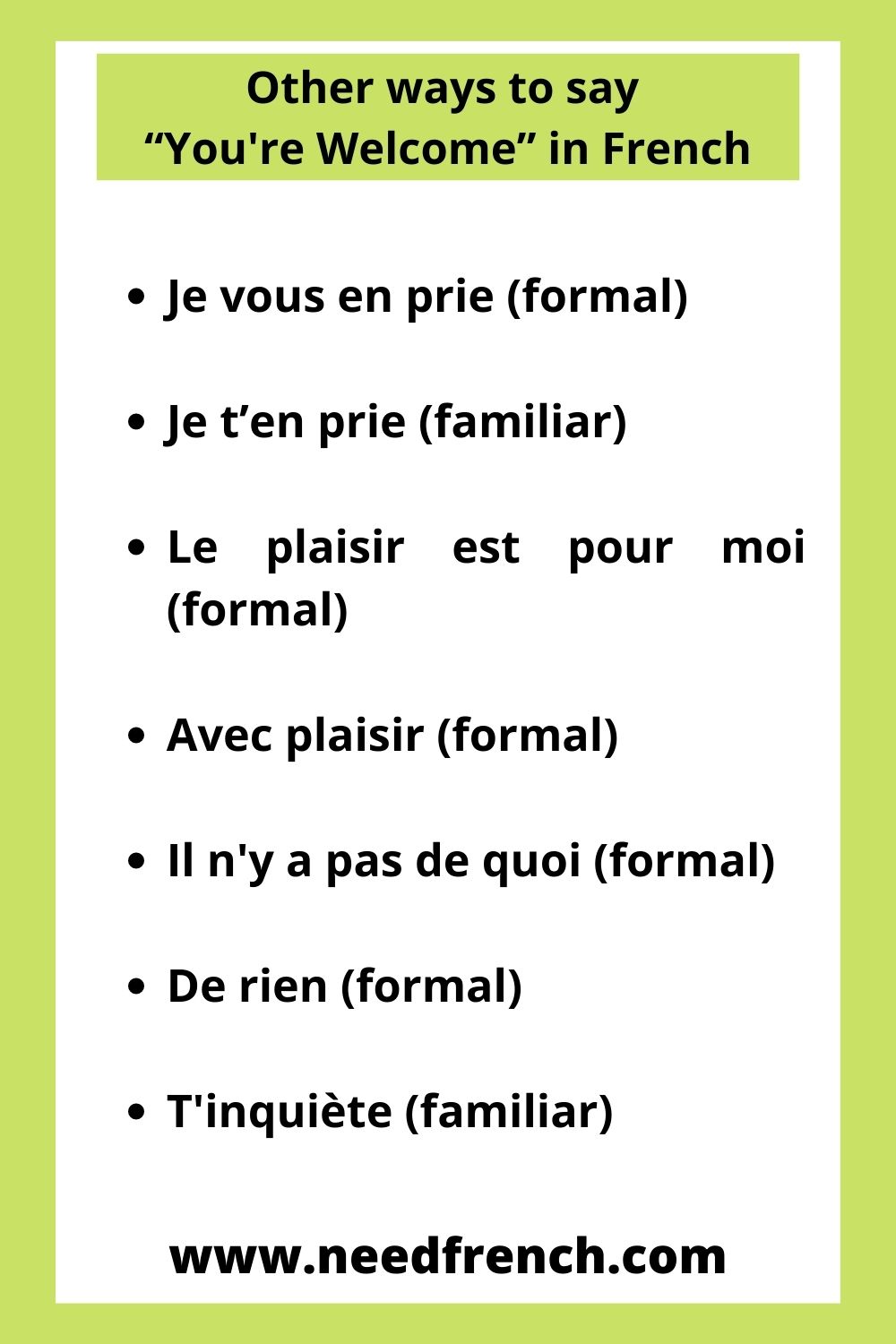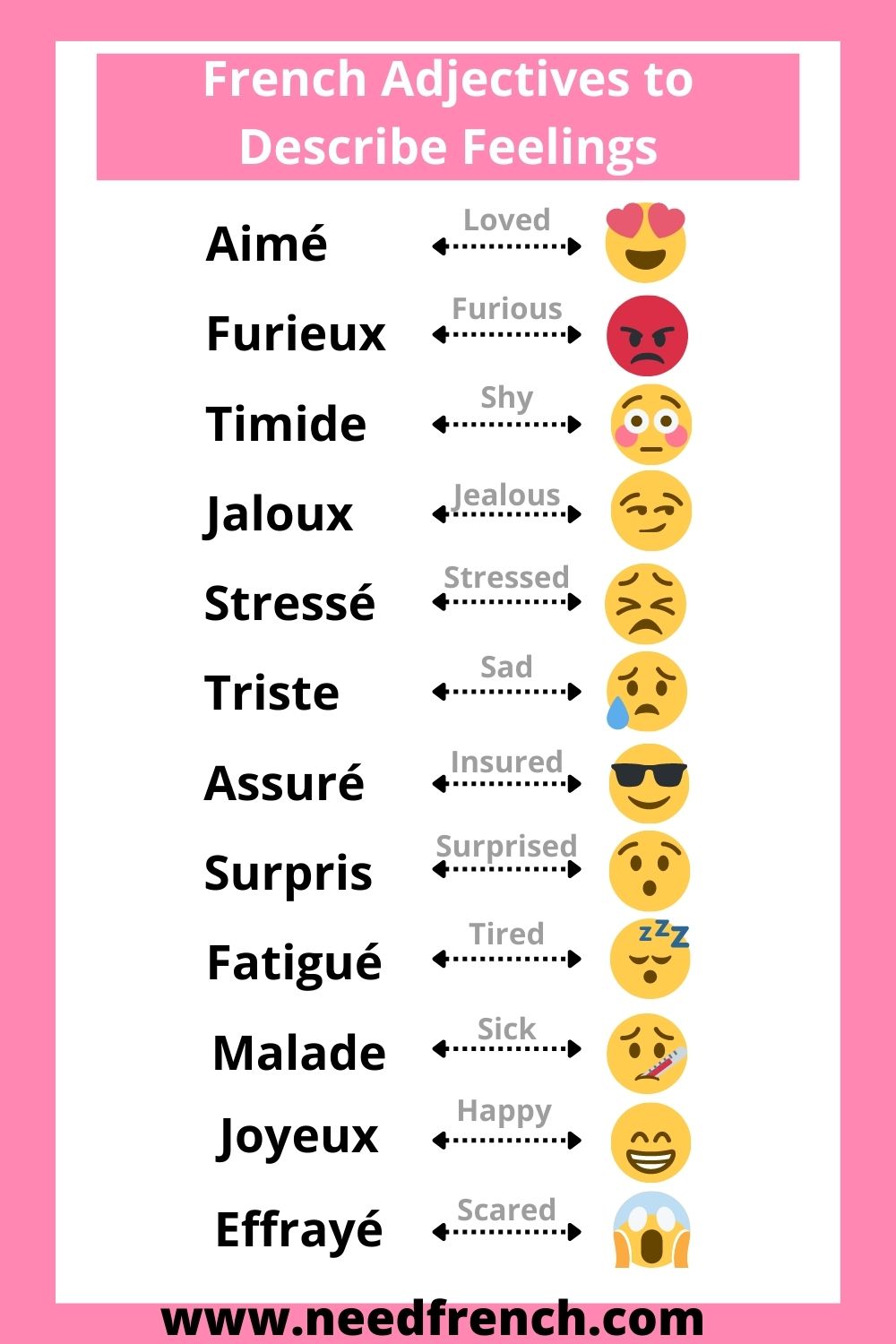Wishing someone good luck is a universal gesture of support and encouragement. French has many colorful expressions to wish someone well, from traditional formal phrases to modern casual expressions with superstitious origins.
Expressions by Formality Level
Formal/Standard
1. Bonne chance
Pronunciation: /bɔn ʃɑ̃s/ (bon shahnse)
- The most standard and universal expression
- Appropriate in all contexts
- Example: “Bonne chance pour votre entretien !” (Good luck with your interview!)
2. Je vous souhaite bonne chance
Pronunciation: /ʒə vu swɛt bɔn ʃɑ̃s/ (zhuh voo swet bon shahnse)
- Very formal, complete expression
- Used in professional or serious contexts
- Example: “Je vous souhaite bonne chance dans vos nouveaux projets.” (I wish you good luck with your new projects.)
3. Que la chance soit avec vous
Pronunciation: /kə la ʃɑ̃s swa avɛk vu/ (kuh lah shahnse swah ah-vek voo)
- Formal version, “May luck be with you”
- Sounds slightly ceremonial
- Example: Used in speeches or formal farewells
Semi-Formal/Everyday
4. Que la chance soit avec toi
Pronunciation: /kə la ʃɑ̃s swa avɛk twa/ (kuh lah shahnse swah ah-vek twah)
- Casual version of the above
- Friendly but still proper
- Example: “Que la chance soit avec toi pour ton examen !” (May luck be with you for your exam!)
5. Je croise les doigts
Pronunciation: /ʒə kʁwaz le dwa/ (zhuh krwahz lay dwah)
- Means “I’m crossing my fingers”
- Shows personal involvement in their success
- Example: “Je croise les doigts pour toi !” (I’m crossing my fingers for you!)
6. Je touche du bois
Pronunciation: /ʒə tuʃ dy bwa/ (zhuh toosh dew bwah)
- Means “I’m knocking on wood”
- Superstitious expression to ward off bad luck
- Example: “Tu vas réussir, je touche du bois !” (You’re going to succeed, knock on wood!)
Casual/Informal
7. Ça va le faire
Pronunciation: /sa va lə fɛʁ/ (sah vah luh fair)
- Very casual, means “You’ve got this” or “It’s going to work out”
- Confident, encouraging tone
- Example: “Ne t’inquiète pas, ça va le faire !” (Don’t worry, you’ve got this!)
8. Tu vas assurer
Pronunciation: /ty va asyʁe/ (too vah ah-soo-ray)
- Casual, means “You’re going to nail it”
- Confident encouragement
- Example: “Pour ton présentation, tu vas assurer !” (For your presentation, you’re going to nail it!)
Specific Contexts
For Exams:
- “Bonne chance pour ton bac !” (Good luck with your baccalaureate!)
- “Je croise les doigts pour tes résultats !” (I’m crossing my fingers for your results!)
For Job Interviews:
- “Bonne chance pour votre entretien !” (Good luck with your interview!)
- “Vous allez assurer !” (You’re going to do great!)
For Competitions:
- “Que la chance soit avec toi !” (May luck be with you!)
- “Tu vas les écraser !” (You’re going to crush them!)
For Life Changes:
- “Bonne chance dans votre nouvelle vie !” (Good luck in your new life!)
- “Tout va bien se passer !” (Everything is going to go well!)
Response to Good Luck Wishes
- Merci ! (Thanks!)
- Merci beaucoup ! (Thank you very much!)
- C’est gentil ! (That’s kind!)
- J’en aurai besoin ! (I’ll need it!)
Remember: “Bonne chance” is universally appropriate, but using expressions like “Je croise les doigts” shows more personal investment in someone’s success and sounds more natural in casual French!















